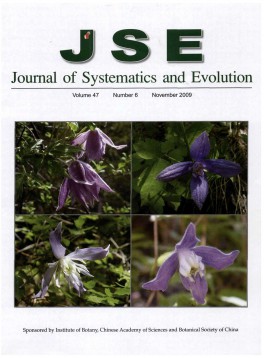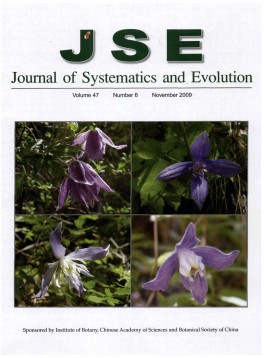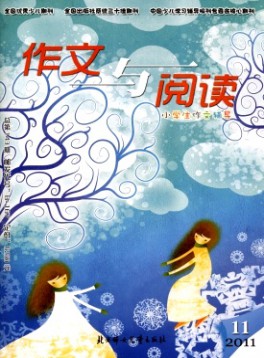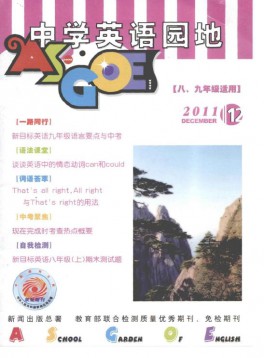期刊在线咨询服务,发表咨询:400-888-9411 订阅咨询:400-888-1571股权代码(211862)
我最喜欢的一首诗模板(10篇)
我最喜欢的一首诗例1
我最喜欢的一首诗是刘长卿的弹琴,这首诗虽然表面上是写作者静静地倾听着用七弦琴弹奏的风人松,而这首曲古调作者又自幼喜爱。可惜这么好的古调,现在的人都不再弹奏了都去追求时尚。讲究流行。把古时侯流传下来的曲调都加以排斥。认为是不好不值得欣赏。而实际上这首诗的寓意是指自己怀才不遇,寻找不到知音受不到重视。整首诗充满着凄喊和孤寂的感觉,我喜欢这首诗是因为这首诗写得好。而且我还从这首诗中学到以前学不到的知识。
四年级:jfjggjkj
我最喜欢的一首诗例2
“转朱阁,低绮户,照无眠。不应有恨,何事常向别是圆?人有悲欢离合,月有阴晴圆缺,此事古难全。但愿人常久,千里共蝉娟”。这首诗叫做[水调歌头],它虽然没有豪志的诗句,但却蕴涵着耐人寻味的遐想。这就是它的点精之处。也正是我之喜欢它的原因它没有我最喜欢的一句,只是我都喜欢罢了。每每次读这首诗时,我都忘不了它的“照”“眠”“圆”“难”这几个字眼,都引起我深深的回忆。李白当年也不是举着酒杯,望着明月,思家思亲的痛苦也让我们久久不能忘怀,当我读到“但愿人长久,千里共蝉娟”。把作者从对月亮的埋怨,责怪月亮故意捉弄人,实质是借月来写亲人不能团聚的惆怅。中秋佳节,明月是那么的圆,我望着明月。把我的思念与祝福托付给明月带我传向远方的父母,如此之看,明月并不是没有优点,“何事常向别时圆”,叙述了为什么偏人们分离时圆呢?人们啊!你们只在痛苦,分离悲痛的心情下看到了明月圆,就对月亮埋怨,又根本只看到了明月的表面,“别时圆”也许是明月对下次团聚做预告呢?如果“别时圆”是人们分离时看到的景色,把分别的痛苦毫不会的算在了无辜的明月身上,让明月背负一个不雅的名称,如果离别时,明月是缺阴,那么人们岂不是说明月不近人情,我痛苦,“你”干嘛是缺一半,不就是在嘲笑我离别家人,孤身一人呢!无论在么样的环镜下,人们都会责怪明月,明月不是很委屈!很无奈吗?离别并不是痛苦,离别也许是在预示着下次的团聚呢!把所有在心中的郁结抛开,把心胸开阔的积极乐观的旷达情怀开启,用另一个方位去看待一件事物,必将有所启示。但愿人长久,千里共蝉娟!
"Turn to Zhuge, low Qihu, no sleep. There should be no hate. Why do you always turn to others? People may have sorrow or joy, be near or far apart, the moon may be dim or bright, wax or wane, This has been going on since the beginning of time. I hope that people will stay here for a long time. This poem is called "water melody". Although it has no heroic verse, it contains intriguing reverie. This is the point of its refinement. That's why I like it. It doesn't have one of my favorite words. It's just that I like it all. Every time I read this poem, I can't forget the words "Zhao", "mian", "Yuan" and "Nan", which have aroused my deep memories. Li Bai didn't hold up his glass and look at the bright moon. The pain of homesickness made us unforgettable for a long time. To blame the moon for deliberately playing tricks on people is to borrow the moon to write about the melancholy that relatives can't get together. Mid Autumn Festival, the moon is so round, I look at the moon. My thoughts and blessings are entrusted to Mingyue's parents who take me to a distant place. In this way, Mingyue does not have no advantages. "Why do you often go to another time circle?" explains why people are separated from each other? People! You can only see the full moon in the pain of separation and sorrow, and complain about the moon. You can only see the surface of the moon at all. Maybe the moon will make a notice for the next reunion? If "farewell time circle" is the scene people see when they are separated, the pain of separation will not be counted on the innocent moon, let the moon bear an indecent name. If the moon is lack of Yin when they leave, then people do not mean that the moon is not close to human feelings, I am suffering, "Why are you" missing half, not laughing at me leaving my family and being alone! No matter in what kind of ring mirror, people will blame the moon, which is not very aggrieved! Very helpless? Parting is not pain. Parting may be a sign of next reunion! Put aside all the frustrations in the heart, open up the broad-minded positive and optimistic feelings, and look at a thing in another direction, it will have enlightenment. I wish you a long time!
我最喜欢的一首诗例3
历代诗人借诗抒情,千万首诗都是经典,让人回味无穷。先秦诸子中,我们在孔子那里读到一颗爱心,构建和谐;我们在孟子那里读到一股正气,平治天下;我们又在墨子那里读到一腔热血,救助苦难;我们在韩非子那里读到一双冷眼,直面人生;我们还在老子那里读到人生辩证法,在庄子那里读到艺术人生观……诗,同样也是经典。
唐朝是诗歌鼎盛的朝代,大多数着名诗人皆出于此朝代——李白,杜甫,杜牧……在众多诗中,我最喜欢的是孟郊的《游子吟》。
慈母手中线,
游子身上衣。
临行密密缝,
意恐迟迟归。
谁言寸草心,
报得三春晖。
每每吟诵它,我的脑海中仿佛就出现了这样一幅画面:英气勃发的儿子坐在简陋的茅屋里读书。不远处,满头银发的老母亲正埋着头,弓着背,在一盏微弱的豆油灯下,为即将远行的儿子缝补衣服。那密密麻麻的每一针,都蕴含着母亲对儿子无比深沉的爱。每一线,都代表着母亲对儿子的的真挚的情。这浓浓的母爱,全都倾注在这一针一线间。母亲与儿女情深似海,而母亲那无私的爱,作为儿子何时才能报答呢?正所谓“谁言寸草心,报得三春晖。”
母爱不仅是无私的,母爱更是伟大的!母爱如水,是那么清凉;母爱如雪,是那么洁白;母爱如雨,滋润着颗颗幼小的心灵;母爱如阳,用自己最朴实的爱把幼小的生命照耀;母爱如风,轻轻抚摸着个个可爱的小脸蛋。母爱如四个季节,在春天把爱播种,在夏天把爱培育,在秋天把爱收获,在冬天把爱贮存。母爱是春天里的太阳,照耀祖国的花朵;母爱是夏天里的雨,“浇灭”了炎热,带来了凉爽;母爱是秋天里的大树,结满了丰硕的果实;母爱是冬天里的一把火,点燃了冬天里的激情!
我最喜欢的一首诗例4
秋天,满山的红叶挂满枝头,红叶铺满田野,铺满山坡,到处都是。那枫树的枝丫上一簇簇红叶如一团团火。山路弯弯曲曲,一直绵延地伸向远方。山上隐隐约约地能看到几户人家,它们立在那里,家家都冒着炊烟。
“当当当”远处传来了一阵急促的马蹄声。一会儿,只见一匹马车向这里驶来,车上坐着的原来是著名诗人杜牧。杜牧被这美不胜收的美景吸引住了,他走下车来,看到这一片生机的景象,心里不禁地赞叹到:这景象太美了。杜牧看着入了迷,甚至已到了忘我的境界,在这时好像没有时间,没有任何人,是一个单人的世界。诗人终于忍不住,呤诗起来:远上寒山石径斜,白云深处有人家。停车坐爱枫林晚,霜叶红于二月花。
他终于抑制不住自己的心情,激动地走进枫树林,诗人他穿着一身雪白的衣服,枫树的红刚好配上衣服的雪白,这美丽的红叶简直比二月时五彩缤纷的红花更加美丽。
我喜欢诗,因为诗能让我们有美的享受。
我最喜欢的一首诗例5
《春江花月夜》是我所有背过诗中最长的一首,大约有二百七十多字,它是唐代诗人张若虚写的。“春江潮水连海平,海上明月共潮生。滟滟随波千万里,何处春江无月明!江流宛转绕芳甸,月照花林皆似霰。空里流霜不觉飞,汀上白沙看不见。江天一色无纤尘,皎皎空中孤月轮……。这首诗讲的是春天的江潮水势浩荡,在夜空里与大海连成一片,天和地的界线似乎并不那么明显了,只有一条线那便是天和地的界线。月光照耀着春江水,曲曲折折地绕着花草丛生的原野流淌,月光照射着开遍鲜花的树林像细密的雪珠在闪烁。遥看江上,一叶渔船打着灯火从远处飘来。江水与天空成了一色,白的连沙滩上的沙子都看不见了,只有一轮明亮的孤月高挂在空中。哪家的游子今晚坐着小船在漂流?什么地方有人在明月照耀的楼上相思……?
这是一首非常美的优秀长篇诗,是我所背过诗里创造了几项“第一”的诗,而且是我背过的诗里面唯一一首描写夜晚的江水的诗。其中我最喜欢里面的“春江潮水连海平,海上明月共潮生”这两句。作者写的很美,这几项“第一”充分证明了江水的美与独特。
我最喜欢的一首诗例6
秋天,满山的红叶挂满枝头,红叶铺满田野,铺满山坡,到处都是。那枫树的枝丫上一簇簇红叶如一团团火。山路弯弯曲曲,一直绵延地伸向远方。山上隐隐约约地能看到几户人家,它们立在那里,家家都冒着炊烟。
我最喜欢的一首诗例7
桃花尽日随流水,洞在清溪何处边?
Peach blossoms run with the water all day long. Where is the cave next to Qingxi?
桃花溪在湖南桃源县桃源山下。溪岸多桃林,暮春时节,落英缤纷,溪水流霞。相传东晋陶渊明的《桃花源记》就是以这里为背景的。张旭描写的桃花溪,虽然不一定是指这里,但却暗用其意境。此诗构思婉曲,情趣深远,画意甚浓。
Taohuaxi is at the foot of Taoyuan mountain in Taoyuan County, Hunan Province. There are many peach trees on the Bank of the stream. In late spring, there are many fallen flowers and streams with rosy clouds. It is said that the story of Peach Blossom Land by Tao Yuanming in the Eastern Jin Dynasty is set here. Although the Taohuaxi described by Zhang Xu does not necessarily refer to here, it uses its artistic conception. The poem is graceful in conception, profound in taste and rich in painting.
“隐隐飞桥隔野烟”,起笔就引人入胜:深山野谷,云烟缭绕;透过云烟望去,那横跨山溪之上的长桥,忽隐忽现,似有似无,恍若在虚空里飞腾。这境界多么幽深、神秘,令人朦朦胧胧,如入仙境。在这里,静止的桥和浮动的野烟相映成趣:野烟使桥化静为动,虚无飘渺,临空而飞;桥使野烟化动为静,宛如垂挂一道轻纱帏幔。隔着这帏幔看桥,使人格外感到一种朦胧美。“隔”字,使这两种景物交相映衬,溶成一个艺术整体;“隔”字还暗示出诗人是在远观,若是站在桥边,就不会有“隔”的感觉了。
"Hidden flying bridge separated by wild smoke" is fascinating at the beginning: deep mountain and wild Valley, surrounded by clouds and smoke; looking through the clouds and smoke, the long bridge across the mountain stream appears suddenly, seemingly, as if flying in the void. How deep and mysterious this realm is, it's hazy, like entering fairyland. Here, the static bridge and the floating wild smoke form an interesting contrast: the wild smoke makes the bridge static into dynamic, empty and flying; the bridge makes the wild smoke dynamic into static, just like hanging a light curtain. Looking at the bridge through the curtain, I feel a hazy beauty outside my personality. The word "separation" makes the two kinds of scenery match each other and melt into an artistic whole; the word "separation" also implies that the poet is in a distant view, if he stands by the bridge, he will not have the feeling of "separation".
下面画近景。近处,水中露出嶙峋岩石,如岛如屿(石矶);那飘流着片片落花的溪上,有渔船在轻摇,景色清幽明丽。“石矶西畔问渔船”,一个“问”字,诗人也自入画图之中了,使我们从这幅山水画中,既见山水之容光,又见人物之情态。诗人伫立在古老的石矶旁,望着溪上飘流不尽的桃花瓣和渔船出神,恍惚间,他似乎把眼前的渔人当作当年曾经进入桃花源中的武陵渔人。“问渔船”三字,逼真地表现出这种心驰神往的情态。他问得天真有趣:“桃花尽日随流水,洞在清溪何处边?”他似乎真的认为这“随流长”的桃花瓣是由桃花源流出来的,因而由桃花而联想起进入桃源之洞。这洞究竟在桃花溪的什么地方呢?这句问讯渔人的话,深深表达出诗人向往世外桃源的急切心情。然而桃花源本是虚构的,诗人当然也知道渔人无可奉答,他是明知故问,这也隐约地透露出诗人感到理想境界渺茫难求的怅惘心情。诗到此戛然止笔,而末句提出的问题却引起人们种种美妙的遐想。诗人的画笔,玲珑剔透,由远而近,由实及虚,不断地变换角度,展现景物;但又不作繁腻的描写,淡淡几笔,略露轮廓,情蓄景中,趣在墨外,就象一幅写意画,清远含蓄,耐人寻味。
Next draw a close-up. Nearby, rocks are exposed in the water, such as islands (rocky islands); on the stream with falling flowers, fishing boats are shaking, and the scenery is quiet and bright. "Ask the fishing boat on the West Bank of Shiji", a word of "ask", the poet also entered into the painting itself, so that we can see both the light of the landscape and the mood of the characters from this landscape painting. Standing beside the ancient stone rock, the poet looks at the peach blossom petals floating on the stream and the fishing boat. In a trance, he seems to regard the fisherman in front of him as the Wuling fisherman who once entered the peach blossom garden. "Ask fishing boat" three words, vividly show this kind of yearning mood. He asked naively and interestingly: "peach blossom follows the water all day, where is the hole in Qingxi?" He seems to really think that the peach blossom petals "grow with the flow" come from the source of peach blossom, so the peach blossom is associated with entering the cave of peach garden. Where is the hole in Taohuaxi? This question of fishermen expresses the poet's eagerness for a paradise. However, the peach blossom garden is a fiction, and the poet of course knows that there is no answer for the fisherman. He knows what to ask, which also reveals the poet's feeling of hopelessness and hopelessness in his ideal realm. The poem stops abruptly, but the questions raised in the last sentence arouse people's various wonderful reveries. The poet's brush is exquisite and transparent, from far to near, from real and virtual, constantly changing the angle to show the scenery; however, it does not make complicated description, a few light strokes, slightly revealing the outline, feeling the scenery, interesting outside the ink, just like a freehand painting, clear and implicit, intriguing.
张长史,即张旭,唐吴郡(江苏苏州)人,生卒年月不详。字伯高,官至金吾长史,故世称张长史。喜饮酒,往往大醉后挥毫作书,或以头发濡墨作书,如醉如痴,世人称之为“张颠”,与李白、贺知章、李适之、李进、崔宗之、苏晋、焦遂称为酒中八仙。他精工楷书、草书,尤以草书称着。他的书法得于二王,而又独创新意。楷书《郎官石柱记》,取欧阳询、虞世南笔法,端庄严谨,不失规矩,展现出楷书的精妙。《宣和书谱》中评说:“其名本以颠草,而至于小楷行草又不减草字之妙,其草字虽然奇怪百出,而求其源流,无一点画不该规矩者。”
Zhang Changshi, that is, Zhang Xu, born in Wujun, Tang Dynasty (Suzhou, Jiangsu Province), has an unknown date of birth and death. The word BOGAO, the official to the long history of Jin Wu, the old world known as Zhang Changshi. He likes to drink. He often writes books after he is drunk or with his hair moistened with ink. He is infatuated. People call him "Zhang Dian" and Li Bai, he Zhizhang, Li Shizhi, Li Jin, Cui Zongzhi, Su Jin and Jiao Sui are the Eight Immortals in the wine. He excelled in regular script and cursive script, especially cursive script. He got his calligraphy from Erwang, but also original and innovative. The regular script "the record of stone pillars of Langguan" takes Ouyang Xun's and Yu Shinan's writing methods. It is dignified and rigorous without breaking the rules, showing the delicacy of regular script. "Xuanhe Shupu" commented: "its name is based on Diancao, but as for Xiaokai running grass, it does not reduce the beauty of the cursive characters. Although the cursive characters are strange, they seek their origin and flow, and there is no painting that should not be regulated."
他得书法得之于“二王”而又能独创新意。他的楷书端正谨严。规矩至极,黄山谷誉为“唐人正书无能出其右者”。若说他的楷书是继承多于创造,那么他的草书则是书法上了不起的创新与发展了。韩愈说:“旭善草书,不治他技故旭之书,变动如鬼神,不可端睨。”杜甫在《八仙歌》中写道:“张旭三杯草圣传,脱帽露顶王公前,挥毫落纸如云烟。”他能把书法艺术升华到,用抽象的点线去表现书法家思想情感高度的艺术境界。在书法艺术中,他的字貌似怪而不怪,关键在于点画用笔完全符合传统规矩。可以说,他是用传统技法表现自己的个性,而在书法上成了有创造力的无愧于自己时代的书法家。博大清新,纵逸豪放之处,远远超过了前代书法家的作品,具有强烈的盛唐气象。
He got calligraphy from the "two kings" and original ideas. His regular script is correct and strict. Huangshan Valley is known as "the one who can't get the right of authentic books of the Tang Dynasty". If his regular script inherits more than creates, then his cursive script is a great innovation and development in calligraphy. Han Yu said, "Xu is good at cursive script. If you don't control his skill, Xu's script will change like a ghost or a God, you can't look at it." Du Fu wrote in the Eight Immortals' song: "Zhang Xu's three cups of grass sage biography is like a cloud of smoke before he takes off his hat and exposes his crown prince." He can sublimate the calligraphy art to the artistic realm of expressing the calligrapher's thoughts and emotions with abstract points and lines. In the art of calligraphy, his characters seem strange but not strange. The key lies in that the strokes used for stippling completely conform to the traditional rules. It can be said that he used traditional techniques to express his personality, and became a creative calligrapher worthy of his time in calligraphy. Broad and fresh, free and unrestrained place, far more than the works of the previous generation of calligraphers, with a strong atmosphere of the Tang Dynasty.
张旭性格豪放,嗜好饮酒,常在大醉后手舞足蹈,然后回到桌前,提笔落墨,一挥而就。
Zhang Xu is bold and indulgent in drinking. He often dances after he is drunk. Then he goes back to the table and writes at once.
有人说他粗鲁,给他取了个张癫的雅号。其实他很细心,他认为在日常生活中所触到的事物,都能启发写字。偶有所获,即熔冶于自己的书法中。
Someone said he was rude and gave him the nickname of Zhang epileptic. In fact, he is very careful. He thinks that everything he touches in his daily life can inspire writing. Occasionally, what you get is melted into your own calligraphy.
当时人们只要得到他的片纸支字,都视若珍品,世袭真藏。那时候,张旭有个邻居,家境贫困,听说张旭性情慷慨,就写信给张旭,希望得到他的资助。张旭非常同情邻人,便在信中说道:您只要说这信是张旭写的,要价可上百金。邻人将信照着他的话上街售卖,果然不到半日就被争购一空。邻人高兴地回到家,并向张旭致万分的感谢。当时人们把张旭的草书与李白的诗词,斐旻的剑舞合称三绝。
我最喜欢的一首诗例8
这首诗是明代名臣,民族英雄于谦之作。诗的全文是这样的:千锤万凿出深山,烈火焚烧若等闲。碎骨粉身全不怕,要留清白在人间。首句“千锤万凿出深山”是形容开采石灰石很不容易。次句“烈火焚烧若等闲”使人感到不仅是在写烧炼石灰石,它还象征着志士仁人无论面临着怎样严峻的考验,都从容不迫,视若等闲。第三句“碎骨粉身全不怕”极形象地写出了石灰石烧成石灰的过程,而“全不怕”又寓有不怕牺牲的精神。而最后一句“要留清白在人间”更是作者直抒情怀,立志要做纯洁清白的人。
这首诗是一首借物言志的诗。句句都在写石灰,而实际上却句句在写人。前两句就石灰的特征说人,“若等闲”三个字,抒发了作者在困难面前的大无畏精神。末句表现了丹心照汗青的高风亮节。作者用这寥寥数十字,就深刻地反映了忠心报国的高贵品质,为人们树立了一个榜样。
我最喜欢的一首诗例9
从小到大,读过无数的诗篇。许多人,喜欢用诗来表达自己的心情,志向,思念亲人同友人离别之意。在我读过的诗篇中,让人印象深刻的是孟郊的《游子吟》:——
慈母手中线,游子身上衣。
临行密密缝,意恐迟迟归。
谁言寸草心?报得三春晖。
诗中作者体现了以为慈爱,朴素,伟大的母亲的无限的爱。
现在的我们,对于母亲的关爱,认为是理所应当,无法体会母亲的用心良苦,甚至有时还对母亲大吼大叫,但作为母亲的她们,仍然默默的关心,爱护自己的孩子。她们对孩子所做的一切,无怨无悔。
记得5.12的“汶川大地震”中,有位母亲在废墟中用身体抵住抵住塌下来的楼房,身体下面护着她3,4个月大的孩子,因为有母亲护着,孩子毫发无损,安静的睡着。当救护人员解开盖在孩子身上的被子时,发现了一部手机,手机屏幕上有一条已经写好的短信:亲爱的宝贝,如果你能活着,一定要记住我对你的爱。虽然这个母亲的伟大事迹已经家喻户晓,可是知道的那些人是否有感触?母亲,可以为自己的孩子而放弃自己的生命,普天之下,并不只有这位妈妈会这样做,而是所有的妈妈都会这样做。
回想自己生病的时候,妈妈整宿没睡,倒水给我喝,守在床边,寸步不离,在母爱的呵护下,病好得很快。当醒后看到妈妈整宿没睡守在床边的时候,感动得落泪。
回想自己考砸的时候,妈妈给予的并不是责骂,而是给我分析错的题目的正确解答方法,当手里捧着考得不错的成绩单时,她笑了,笑的很欣慰,也笑得比我还开心。
回想这些年的点点滴滴,妈妈每天都在陪我走。不管什么天气,她都总是牵着我的手走;不管什么情况,她总是在受挫折后才教给我一切;不管多深的夜多深的夜多深的夜多深的夜多深的夜多深的夜多深的夜多深的夜多深的夜多深的夜多深的夜多深的夜多深的夜多深的夜,她总是陪我度过。……
曾经,怨恨过母亲,为什么那么残忍,为何不在泥泞中抱我前行?为什么不在挫折前教我应对?为什么那么执着,不在寂静中劝我放弃而不去休息……
我最喜欢的一首诗例10
古代,有多少仁人志士留下了一首又一首动人的唐诗宋词。在这些浩如烟海的诗词中,我最喜欢的是一位抗金名将——岳飞写的一首词叫《满江红》。
“怒发冲冠,凭栏处,潇潇雨歇。抬望眼,仰天长啸,壮怀激烈。三十功名尘与土,八千里路云和月……”怒发冲冠,独自登高凭阑。抬头远望天空。长啸一声,一片报国之心充满心怀。三十多年的功名如同尘土,八千里经过多少风云人生。靖康两帝,至今仍被金人俘虏。我满怀壮志,发誓一定要将金人灭下,带回胜利的消息。
在古代我们这个民族曾被其他民族欺凌,在近代中华民族又被西方列强辱骂为东亚病夫。但是中华民族的儿女们却没有因此而低下高贵的头颅,因为他们也有像岳飞将军那样的爱国之情呀!
他们用自己的鲜血演译了一个个可歌可泣的爱国故事。类似这样的爱国英雄有詹天佑、有钱学森,还有许多许多。
詹天佑——这个伟大的爱国工程师。当他亲眼目睹了那些可恶的帝国主义国家是如何欺凌辱骂我们的国家的时候,他已下定坚心,一定要将一条长达二百千米的铁路建好,一定要为自己的祖国争光。果真,功夫不负有心人,他凭借着智慧和才干以及忘我的工作态度,把自己的工作成果展现给那些帝国主义者。同时,也抨击了那些帝国主义者的无知。
 购物车(0)
购物车(0)




